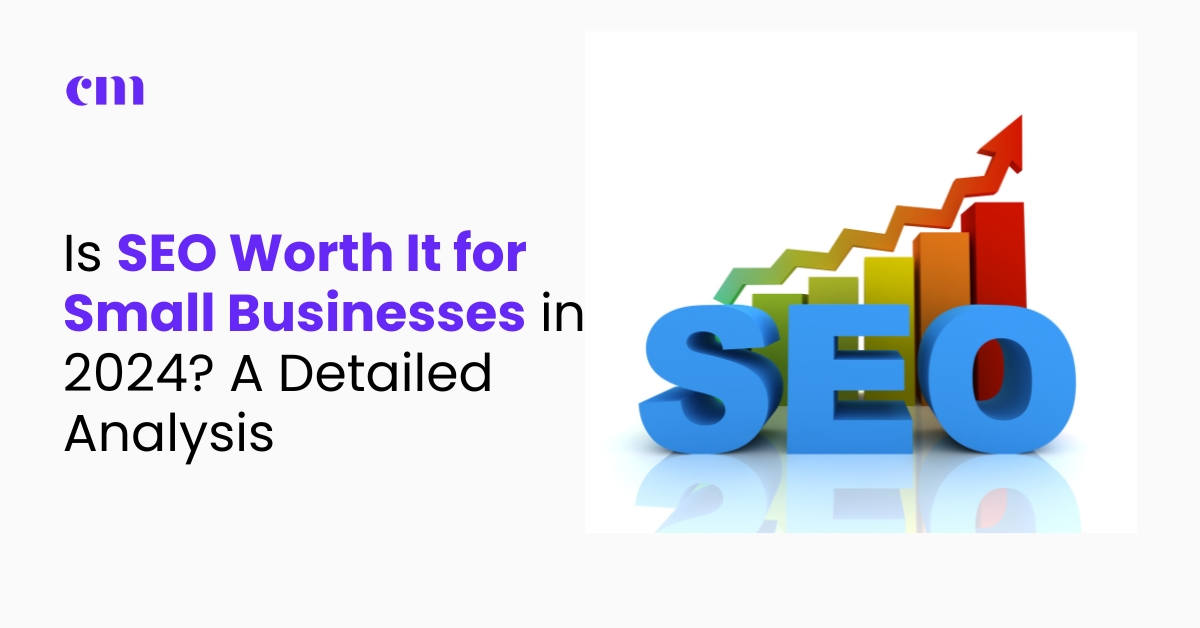In today’s competitive online scenario, small businesses are often caught between the allure of rapid growth through paid advertising and the promise of long-term, organic visibility via SEO.
Contents
ToggleIf you’re wondering whether investing in SEO is worth it for your small business, the answer is a clear yes.
But let’s break down why it matters and how you can make it work for you.
The Benefits of SEO for Small Businesses
- Cost-Effective Marketing
SEO offers one of the most cost-effective digital marketing strategies, especially for small businesses with limited budgets. While paid ads may offer quick results, SEO can deliver sustained visibility and traffic for months or years after implementation. This long-term benefit makes it one of the most attractive options for business owners looking for steady growth without ongoing advertising costs. - Targeted Traffic and Credibility
With SEO, you’re not just getting more visitors; you’re attracting the right visitors. By optimizing your website with relevant keywords, you can ensure that your site ranks for searches directly related to your products or services. Additionally, high-ranking sites are perceived as more credible, making it easier to build trust with your audience. - Local SEO for Local Results
For businesses serving specific geographical areas, local SEO for small business is crucial. Nearly 46% of all Google searches have a local intent, meaning users are looking for nearby solutions. Optimizing for local SEO can help you capture this traffic and stand out from competitors.
Key Considerations for Small Business SEO
- Long-Term Investment
SEO is not an overnight solution. It can take anywhere from three to six months to see noticeable results, but once the foundation is laid, the benefits can snowball. For example, studies have shown that businesses can achieve an ROI of 275% from SEO, far exceeding the short-term gains from PPC advertising. - Competitive Edge
One of the common concerns small business owners have is whether they can compete with larger, more established companies. The good news is, search engines prioritize relevance and quality over size. By focusing on niche keywords and creating high-value content, small businesses can compete effectively with larger companies. - Mobile Optimization and User Experience
With over 60% of users conducting searches from mobile devices, ensuring that your website is mobile-friendly is crucial. Technical aspects like page speed, user experience, and mobile-friendliness directly impact your search rankings and user engagement.
Read:
- SEO for Dental Website: Complete Strategy and Benefits
- 9 SEO Strategies for Doctors: Attract More Patients Online.
Cost vs. Benefit Analysis of SEO for Small Businesses
- Initial Costs vs. Long-Term ROI
One of the major concerns for small business owners is the upfront cost of SEO services. High-quality SEO, when done professionally, often comes with a significant price tag. However, unlike paid advertising, where the results disappear once the budget runs out, SEO continues to deliver results long after the initial investment. Studies show that SEO can provide an average ROI of $2.75 for every $1 spent. Even though the initial setup can be costly, the long-term returns make it a much more sustainable option than short-term tactics like PPC. - Comparison With Other Marketing Channels
When comparing SEO to other marketing tactics such as social media or paid ads, SEO stands out due to its ability to generate organic traffic without continuous spending. PPC, while effective in delivering quick results, requires ongoing financial input, and once the campaign stops, so does the traffic. SEO, on the other hand, continues to deliver, making it more cost-effective over time. Additionally, SEO often produces higher-quality leads compared to other channels. - Tracking and Measuring SEO Success
Unlike traditional marketing channels, the performance of an SEO campaign is highly measurable. Using tools like Google Analytics, small businesses can track key metrics such as organic traffic, conversion rates, and user engagement. This data-driven approach allows business owners to evaluate the effectiveness of their SEO strategy, optimize as needed, and understand exactly how their investment is paying off.
Best Practices for Implementing SEO
- Keyword Research
The foundation of any successful SEO strategy is thorough keyword research. For small businesses, it’s crucial to focus on long-tail keywords, which are more specific and less competitive than generic terms. Long-tail keywords not only attract more qualified traffic but also allow small businesses to rank faster compared to competing for broader terms. - Content Creation and Optimization
Content remains king in SEO. Small businesses should prioritize creating high-quality, informative content that answers the questions their target audience is asking. This includes blog posts, how-to guides, product reviews, and more. Additionally, content optimization should focus on using keywords naturally, ensuring proper meta descriptions, and optimizing for voice search. - Technical SEO and Mobile Optimization
Beyond content, technical SEO plays a pivotal role in how search engines perceive your website. This includes aspects like page speed, mobile responsiveness, site structure, and crawlability. Since nearly 60% of all searches are done via mobile devices, having a fast, mobile-optimized site is essential for both user experience and SEO rankings. - Backlink Building
Another important factor is backlink building. Backlinks from authoritative, relevant websites act as endorsements for your site, signaling to search engines that your content is valuable. However, it’s essential to focus on white-hat link-building strategies, such as creating shareable content, engaging in guest posting, and collaborating with other businesses.
How to Choose the Right SEO Services for Small Businesses?
- Customized Strategy
When selecting an SEO provider, ensure they tailor their strategy to your business needs rather than offering a one-size-fits-all solution. A customized approach should consider your target audience, business goals, and unique industry challenges. - Transparency and Reporting
Look for an SEO service that provides regular reports on campaign progress. Clear metrics, such as traffic growth, keyword rankings, and lead generation, are essential to understand whether your investment is paying off. - Reputation and References
Don’t hesitate to ask for case studies or testimonials from other small businesses that have used the service. A reputable SEO provider will have no problem sharing their success stories.
Conclusion: Is SEO Worth the Investment?
SEO remains one of the most cost-effective ways for small businesses to build their online presence and attract qualified leads.
While the initial investment can seem daunting, the long-term benefits—sustained traffic, improved credibility, and higher ROI—make it worth considering.
By focusing on high-quality content, technical optimization, and the right keywords, small businesses can compete effectively in their niche, drive relevant traffic, and see lasting results.
If you’re ready to take your small business to the next level with a strategic, data-driven SEO approach, Crawl Math can help. Specializing in healthcare marketing, Crawl Math’s team of SEO experts ensures your business ranks where it matters most—at the top of search engine results.
From comprehensive keyword research to technical SEO optimization, Crawl Math offers tailored solutions that drive long-term, sustainable growth. Contact us today to discuss the best marketing plan for your healthcare business.


